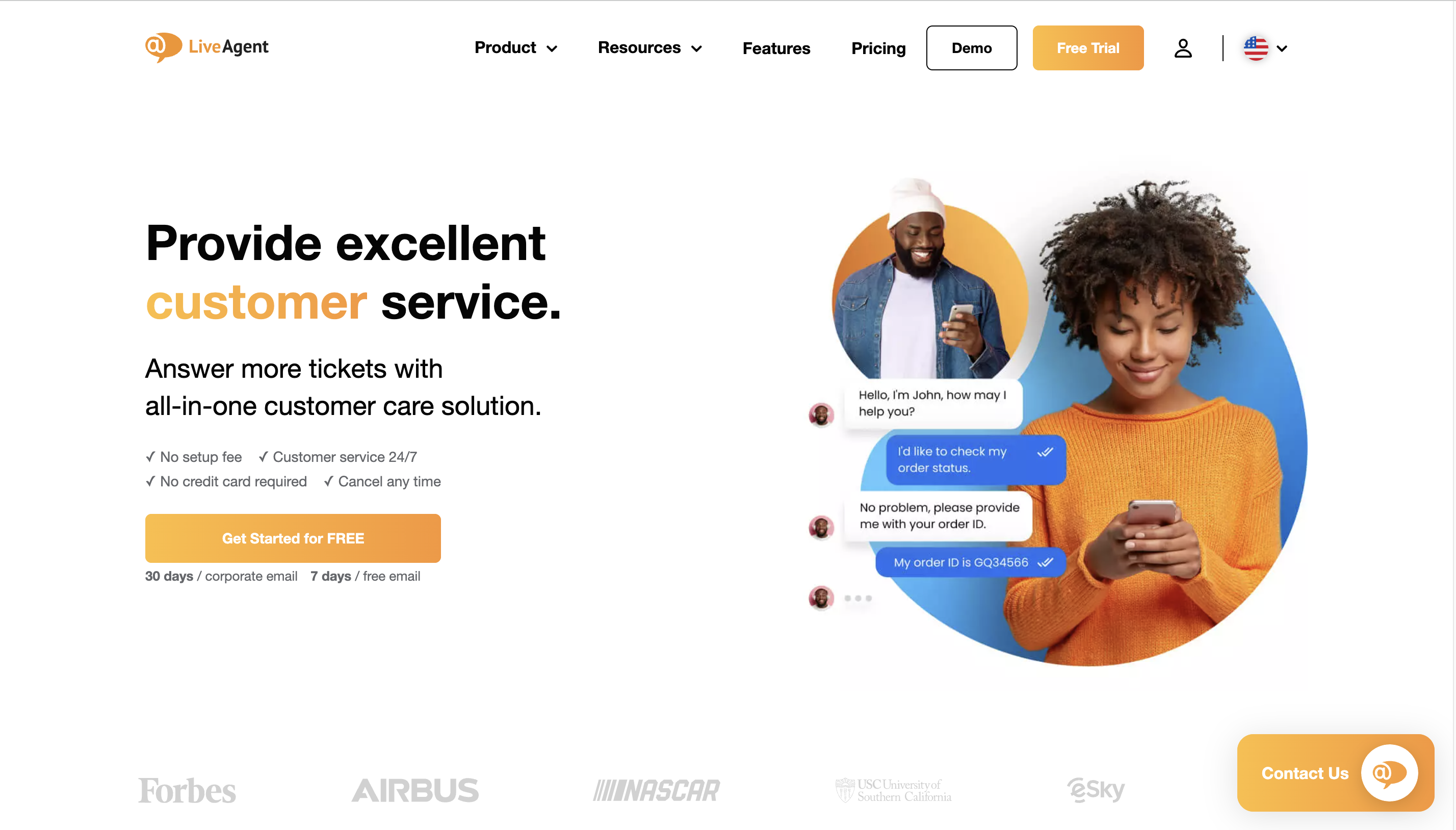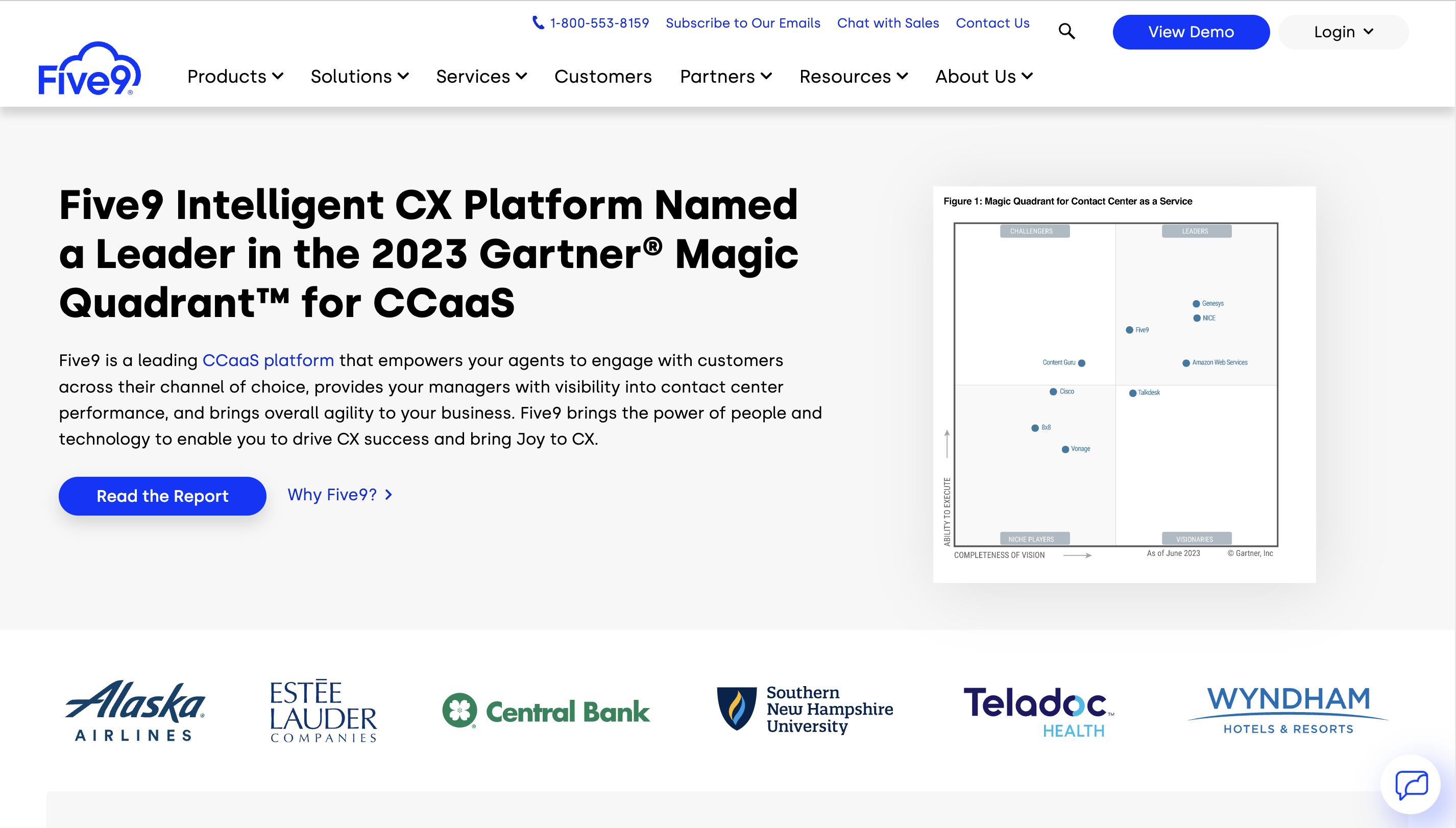HIPAA-compliant call centers adhere to stringent regulations to ensure the utmost security and confidentiality of sensitive patient information. From encrypted data transmission to secure storage systems, these call centers are designed to handle health-related inquiries while providing robust data protection.
This article dives into the top five HIPAA-compliant call centers. We will explore their key features, benefits, and the critical role they play in safeguarding patient data.
Top 5 HIPAA-Compliant Call Center Solutions
Nextiva
Nextiva is renowned for its business phone services, including a HIPAA-compliant call center solution. Its unique selling proposition is its excellent customer service and high reliability, making it a reliable choice for healthcare organizations.
Key Features:
- HIPAA-compliant communications. Nextiva ensures all voice and video communications are encrypted, adhering to HIPAA regulations.
- BAA provision. Nextiva provides a BAA, demonstrating its commitment to maintaining HIPAA compliance.
LiveAgent

LiveAgent excels as a help desk platform but is not inherently HIPAA-compliant. Nonetheless, it can be tailored to adhere to HIPAA stipulations by implementing specific configurations to manage patient data securely. This involves deploying SSL certificates, mandating two-factor authentication for agents, etc.
Key Features:
- Data encryption. LiveAgent uses strong encryption for all data in transit and at rest, ensuring it is protected according to HIPAA standards.
- Secure access controls. Access to sensitive patient data is strictly controlled, ensuring only authorized personnel can access it.
RingCentral
RingCentral offers a comprehensive communication suite, including a robust HIPAA-compliant call center solution. Its seamless integration capabilities make it an ideal choice for healthcare organizations seeking a unified communication system.
Key Features:
- HIPAA-compliant communications. RingCentral ensures all voice, video, and text communications are encrypted, meeting HIPAA requirements.
- Secure storage. RingCentral uses secure data centers and cloud storage to protect patient data, adhering to HIPAA standards.
8×8
8×8 is a leading provider of VoIP products, including cloud-based call center solutions. Its commitment to exceptional security and compliance standards sets it apart, making it a top choice for healthcare organizations.
Key Features:
- HIPAA-compliant communications. All voice, video, chat, and fax communications are encrypted end-to-end, ensuring compliance with HIPAA regulations.
- BAA provision. 8×8 provides a Business Associate Agreement (BAA), a critical requirement under HIPAA for service providers handling protected health information.
Five9

Five9 is a HIPAA-compliant cloud contact center solution that stands out due to its advanced artificial intelligence capabilities. This feature enables efficient patient interactions while maintaining high HIPAA compliance standards.
Key Features:
- Secure data handling. Five9 complies with HIPAA regulations by using strong encryption and access controls to protect sensitive patient data.
- BAA provision. Five9 provides a BAA, further strengthening its commitment to HIPAA compliance.
Key Features of HIPAA-Compliant Call Centers
HIPAA-compliant call centers are designed to ensure the maximum security and confidentiality of patients’ sensitive health information. Here are some key features that make these call centers stand out:
Data encryption
HIPAA-compliant call centers employ robust encryption techniques to protect patient information during transmission and storage. This ensures that even if data is intercepted, it remains unreadable and secure.
Secure messaging
Secure communication channels like phone calls, emails, live chats, instant messaging, and SMS texting are integral to HIPAA-compliant call centers. These features ensure confidential patient information is shared securely between healthcare providers and patients.
Appointment reminders
HIPAA call centers can provide appointment reminders for patients, which not only enhances the patient experience but also helps healthcare organizations save time.
Staff training
Team members at HIPAA-compliant call centers receive training on handling sensitive data. This ensures that everyone involved understands the importance of HIPAA and data security.
Business Associate Agreement (BAA)
Any entity that handles protected health information on behalf of a healthcare provider must sign a BAA. This legally binding contract ensures third-party associates comply with HIPAA requirements, further protecting patient data.
Benefits of Using HIPAA-Compliant Call Centers in Healthcare
Using HIPAA-Compliant call centers in healthcare has numerous benefits that significantly enhance the quality of care and service provided to patients. Here are some of the key advantages:
Improved patient communication
HIPAA-compliant call centers enable secure and efficient communication between healthcare providers and patients. They can facilitate HIPAA-compliant texting, allowing on-call physicians to receive sensitive patient information securely.
Enhanced patient privacy and trust
Compliance with HIPAA demonstrates to patients that their privacy is taken seriously, building trust and ensuring the best care and service. It also helps avoid potential violations and legal issues.
Increased flexibility
HIPAA-compliant call centers offer flexibility to work with various healthcare organizations’ systems and processes. This adaptability can significantly improve operational efficiency and patient experience.
Better retention rates
An effective HIPAA-compliant medical call center solution can improve patient retention. Patients are more likely to continue using healthcare providers’ services by ensuring secure and efficient communication.
Reduced costs
Outsourcing to a HIPAA-compliant call center can provide significant cost savings for healthcare organizations. It eliminates the need for an in-house call center, reducing overhead costs and allocating resources to other patient care areas.
As healthcare continues to evolve, the role of these HIPAA call centers will only become more critical in delivering high-quality, compliant care moving forward.

Final Insights into HIPAA-Compliant Call Centers
HIPAA compliance for call centers is a crucial component in the healthcare industry. They are specifically designed to handle sensitive patient health information while ensuring strict adherence to HIPAA.
This federal law, established in 1996, sets forth standards for protecting health information held or transferred electronically. The main goal of HIPAA is to keep patient data secure. Hence, HIPAA call centers dealing with such information must be fully compliant.
In a HIPAA-compliant call center, every measure is taken to ensure the confidentiality, integrity, and availability of all electronically protected health information (ePHI). This includes all information that the call center creates, receives, maintains, or transmits. Best practices include secure data transmission, encrypted storage systems, regular risk assessments, and comprehensive staff training.




